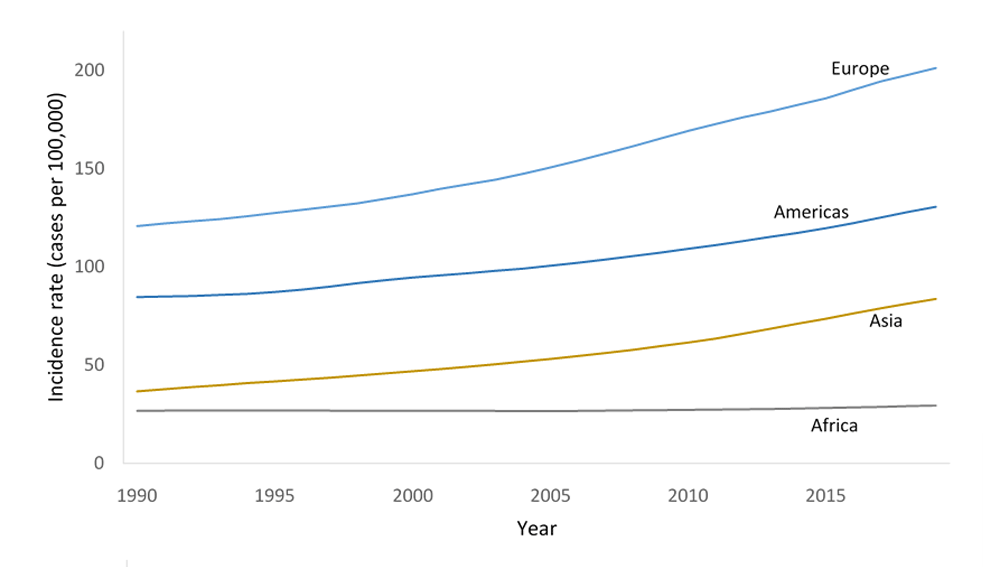
(Rightallegiance.com) – Dementia is becoming an increasingly prevalent concern worldwide. Recent studies indicate a significant rise in dementia cases, with projections suggesting that nearly half of individuals over the age of 55 may develop some form of dementia in their lifetime. This article explores the reasons behind this surge and provides actionable steps to mitigate the risk.
According to a study published in Nature Medicine, the number of annual dementia cases in the United States is expected to double by 2060, reaching approximately one million diagnoses per year. The lifetime risk of developing dementia for Americans over the age of 55 is estimated at 42%, with higher risks observed among women, Black adults, and those carrying the APOE e4 gene variant .
Globally, the situation is similarly alarming. The World Health Organization’s Global Status Report on the Public Health Response to Dementia projects that the number of people living with dementia will triple to 139 million by 2050, placing immense pressure on healthcare systems and caregivers .
Several factors contribute to the increasing prevalence of dementia:
Aging Population: As life expectancy increases, the number of older adults susceptible to dementia grows.
Chronic Health Conditions: Diseases such as hypertension, diabetes, and high cholesterol are linked to an elevated risk of dementia.
Lifestyle Factors: Poor diet, lack of physical activity, smoking, and excessive alcohol consumption can contribute to cognitive decline.
Genetic Predisposition: Inherited genes, particularly the APOE e4 allele, increase the likelihood of developing Alzheimer’s disease, the most common form of dementia.
While some risk factors are beyond control, many lifestyle choices can significantly reduce the risk of developing dementia:
Adopt a Brain-Healthy Diet
Following diets like the MIND (Mediterranean-DASH Diet Intervention for Neurodegenerative Delay) diet, which emphasizes whole grains, leafy greens, berries, nuts, and olive oil, has been associated with slower cognitive decline .
Engage in Regular Physical Activity
Regular exercise improves blood flow to the brain, supports neural growth, and reduces the risk of cognitive decline. Activities such as walking, swimming, or cycling for at least 150 minutes per week are beneficial.
Maintain Cardiovascular Health
Controlling blood pressure, cholesterol levels, and blood sugar through medication, diet, and exercise can lower the risk of vascular dementia.
Stay Mentally and Socially Active
Engaging in activities that challenge the brain, like puzzles, reading, or learning new skills, can build cognitive resilience. Additionally, maintaining social connections helps prevent isolation, a known risk factor for dementia.
Protect Your Senses
Addressing hearing and vision impairments can reduce dementia risk. Using hearing aids and corrective lenses promptly can help maintain cognitive function.
Avoid Harmful Habits
Eliminating smoking and limiting alcohol intake can decrease the risk of dementia. Additionally, managing stress and ensuring adequate sleep are crucial for brain health.
Dementia is not an inevitable part of aging. By understanding the factors that contribute to its rise and implementing lifestyle changes, individuals can significantly reduce their risk. Early intervention and consistent healthy habits are key to preserving cognitive function and enhancing quality of life as we age.